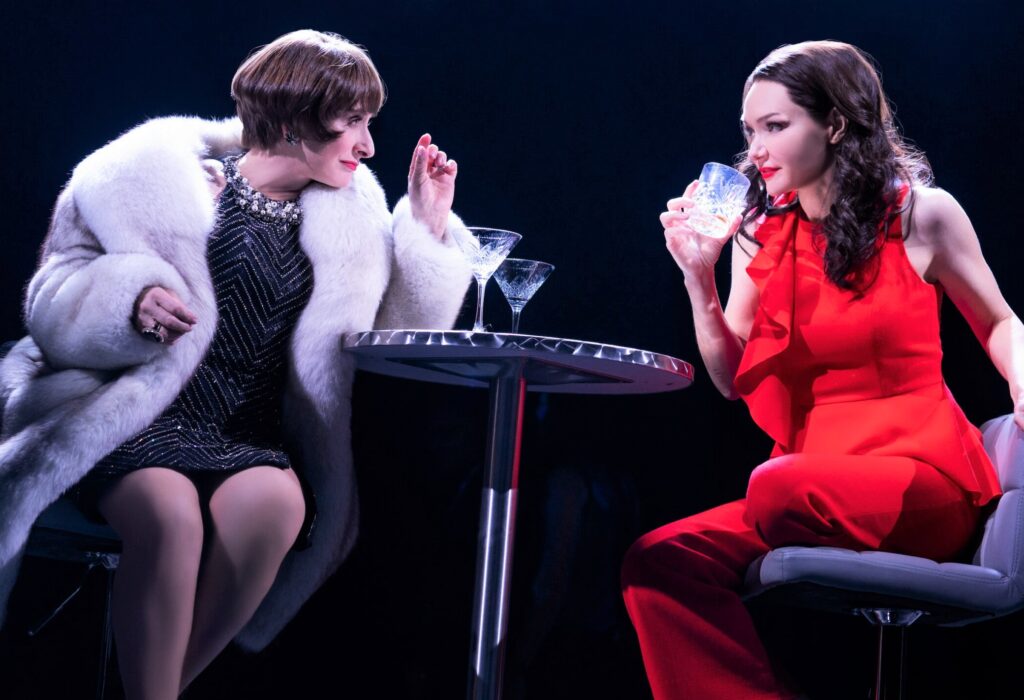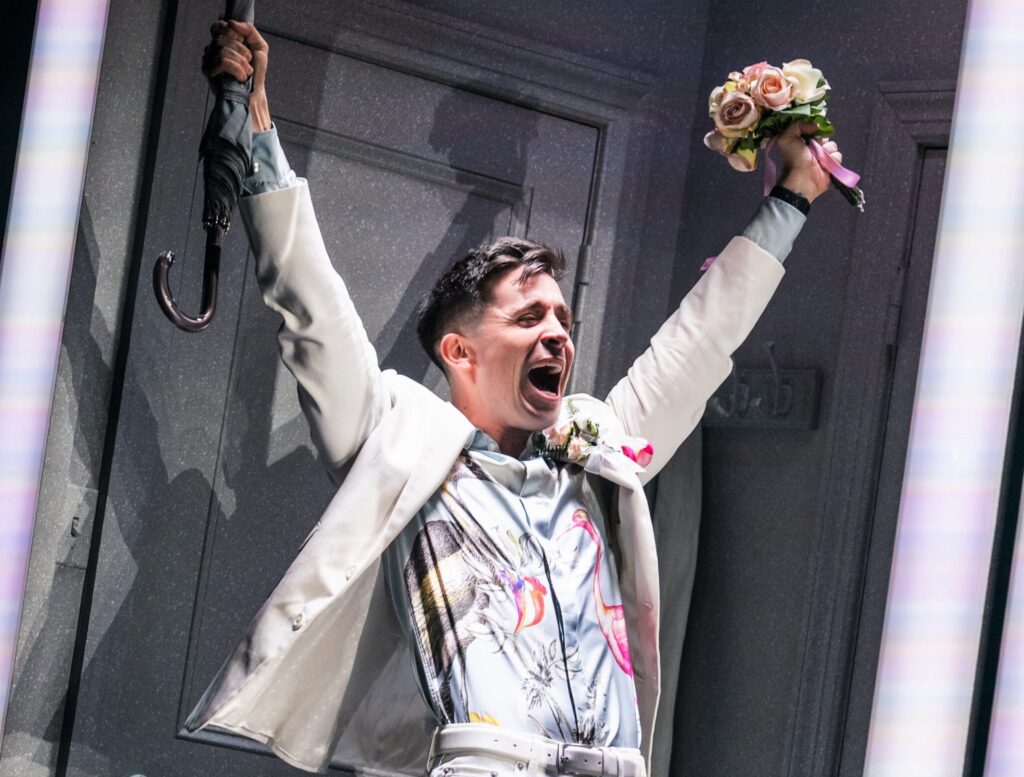Several terrific performances in the current Broadway revival of “Company” owe their provenance to its gender-switched casting. Originally about NYC bachelor Robert/Bobby being feted on his 35th birthday by ten of his friends (five couples), who also noodge him about being single at that advanced age (Imagine!), even as he grapples with his own ambivalence, the show now centers on birthday-girl Bobbie, who is subject of the same chagrin over her apparent commitment phobia.
Switching that pivotal role from male to female trickles down to some of the characters with whom he, now she, interacts. Still straight, Bobbie’s past/present romantic partners are now men and while four of the five couples are still hetero, one is same-sex male, a change that works better, I would wager, than might have been expected.
Overall, however, the concept comes off as arbitrary – not gimmicky exactly, but close to it. With notable exceptions, it is something of a distraction from Stephen Sondheim’s innovative music and lyrics and from director Marianne Elliott’s fine staging.
Katrina Lenk, fresh from her 2018 Tony-winning turn in “The Band’s Visit,” would seem an ideal Bobbie, but her natural coolness (as in vibe), so well-suited for “Band’s Visit” (and “Indecent” before that), is a poor fit for Bobbie. Much of George Furth’s book, already revised for a previous Broadway revival, is given over to other people talking about Bobbie, but besides Ms. Lenk’s considerable attractiveness, the over-attention seems intended to support rather than illuminate the character. And even though Bobbie questions her own status, notably in her eleven o’clock number “Being Alive,” isn’t the idea of a single-by-choice 35-year-old woman (or man) being an outlier, in 2021, past its sell-by date? Where Robert’s jealousy-inducing swinging-single status at 35 might have been fair game in 1970, reluctance to accept an independent woman’s choices in 2021 is out of touch. (No? Tell that to the single career-woman who accompanied me to the show.)
What may well be timeless are some of the married-couples’ vignettes that unfold, any one of which would be right at home in an evening of one-acts, which, in fact, they once were, of Furth’s.

David (Christopher Sieber) and Sarah (Jennifer Simard) grapple for bragging rights while Bobbie (Lenk) and Joanne (Patti LuPone) cheer them on. Guess who wins. [Photo: MatthewMurphy]
Flight attendant April is now Andy, portrayed flawlessly by Claybourne Elder as a dim hunk. (“It’s not easy to act dumb,” quoth my actress friend.) My quibble here – and a quibble it may be – is that the husbands hovering over the bed while Bobby and April are making it was amusing, if a tiny bit creepy, but the same men in the same voyeuristic formation while Bobbie is being, um, serviced by Andy is less amusing and really creepy. It is symbolic, yes; they are not actually at bedside, but still…

Getting high together: Bobbie (Lenk), David (Christopher Fitzgerald) and Jenny (Nikki Renee Daniels) [Photo: Brinkhoff Moegenburg]
In a joint presentation a few years ago, my colleague Marc Miller noted the 1970 “Company” as one of the Seven Turning Points of the American Musical Theater. (“Showboat” and “Oklahoma!” were among the others.) I reckon that distinction still holds, but it is a safe bet that the next revival will eschew Bobbie for a Bobby.
Bernard B. Jacobs Theatre, 242 West 45th Street, NYC. Performance and ticket information: www.companymusical.com




